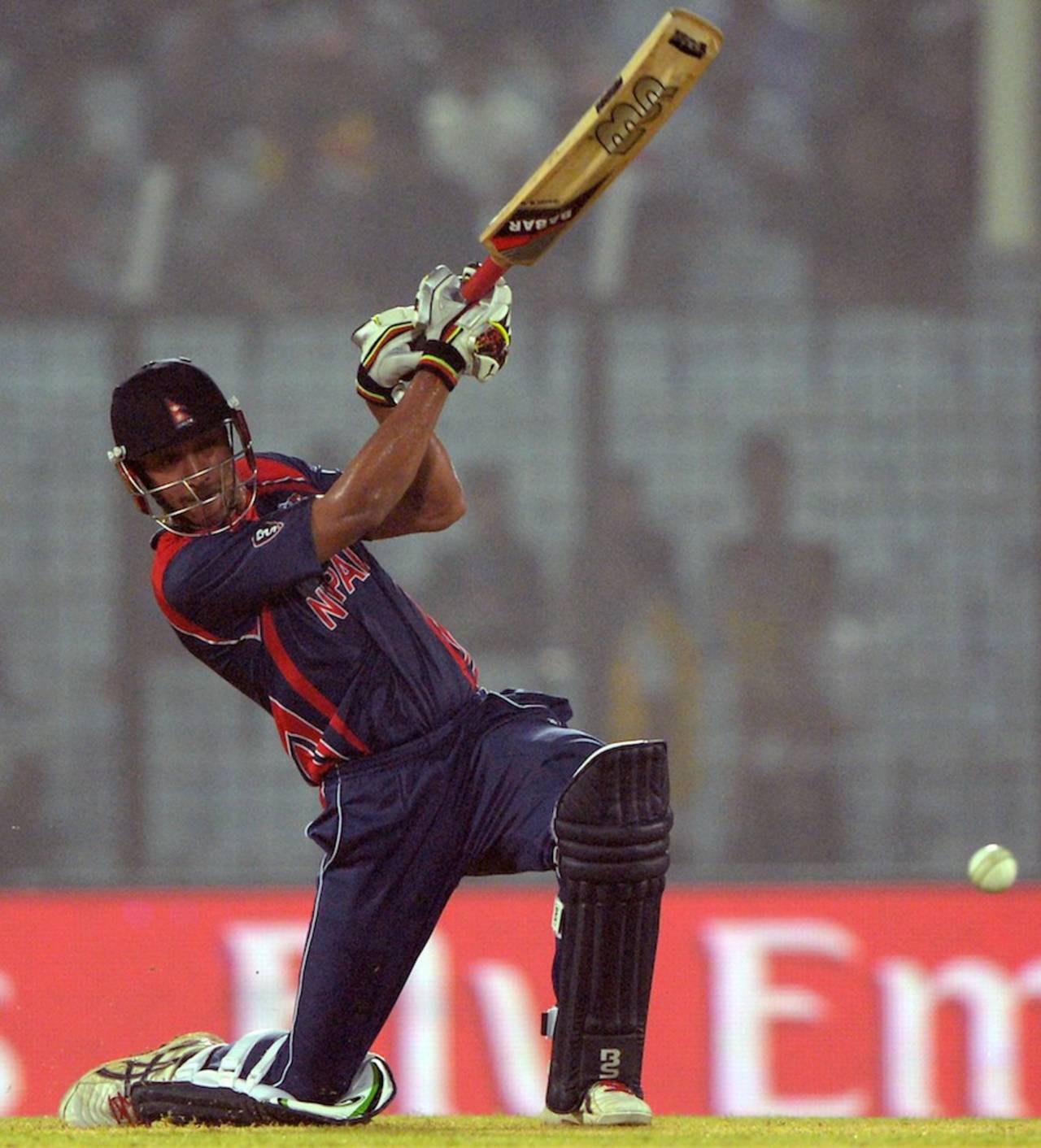Nepal's national players have boycotted the national one-day cricket championship that began on April 9. Captain
Paras Khadka made the announcement at a press conference, surrounded by his team-mates, at a hotel in Kathmandu. According to Khadka, one of the chief reasons for the boycott was that the team felt the Cricket Association of Nepal has been overlooking their needs.
At the press conference on Thursday, Khadka had raised three issues: the non-payment of promised perks, the change in venue and scheduling of the one-day tournament, and the need for remuneration for
Prithu Baskota, who suffered a knee injury during the 2015 World Cup Qualifier in New Zealand in January. Talking to ESPNcricinfo, Khadka stressed that above these issues, the questions of accountability and the need for a professional set-up were the reasons that prompted this move from players who were, he said, "fed up".
"In our system, everyone is a volunteer," Khadka told ESPNcricinfo. "But the players have suffered a lot. We want Nepal cricket to go further but that can only happen if the system changes. We need a new system for a better future and better status. We want a professional set-up. The players are fed up right now but we are also ready to answer anyone for our actions. We want CAN to do the same."
According to Khadka, financial accountability of the board was one of the main concerns of the players. The players, he said, hadn't been paid for more than six months, and he expressed concern about CAN paying hefty fines to the ICC for not submitting the required financial documents on time.
"According to the ICC rules, teams that qualify for the World T20 could get a grant of $250,000. Around two-three months prior to the tournament, we were promised by the board that if we qualified, the group of players would get a total of $50,000," he said. "After the World T20 campaign, we were again expecting another grant for the players. The coach [Pubudu Dassanayake] and I had plans to use that money and introduce a form of contract system so that the pool of players who benefited would be more than just the 15 in the team. Unfortunately, around 12-13 days back when we had a meeting with the board, they said they didn't know about any [of that].
"The board has been handling cricket badly. In 2013, the ICC fined CAN $84,000 because the board could not present its financial statements. In a country that is always struggling for funding, isn't it sad that we are fined because we don't get our financial [documents] in order?"
Khadka also said that he had an issue with the relevance and scheduling of the one-day tournament, which was a selection trial ahead of the squad announcement for the Asian Cricket Council's Premier League tournament. "The board is supposed to announce 18 players on April 10 and this tournament starts on April 9. It's not scheduled on the calendar. As current players, we have had no time to prepare for the tournament - we normally have at least a month. We then requested CAN to have the tournament in Kathmandu as there are better facilities but the board remained adamant [about having games in Pokhara]."
One of the big problems with the system, Khadka said, was that most communication from the board "is always verbal". The Baskota instance, he said, was an example of this, and showed that the board was not treating players well. "If one of our players gets injured, they don't help them with money," he said. "They say the money has been passed, but the player then has to struggle and run around to get his funds." When asked if he knew that the board secretary, Ashok Nath Pyakuryal, had told ESPNcricinfo it had decided to help fund Baskota's treatment, Khadka said the process was still difficult for the player. "These things are handled badly," he said. "Often, the coach or I have to call the board and ask them to manage certain things."
The players' boycott puts Nepal's participation in the ACC Premier League tournament under a cloud with a lot riding on how CAN decides to proceed after its board meeting, which is likely to be some time over the weekend. Khadka said it was unfortunate that the issue had come to this, but also said that given the team's spirited showing at the World T20, where they
beat Afghanistan, he was hoping their concerns find more attention.
"We have been working hard but we have also been tolerating this for years and years. In the last 7-8 months after we qualified for the World T20, cricket has become a household topic. If we hadn't performed as well as we did, we probably wouldn't have even had a meeting with CAN. We presented them with concrete plans to correct the system and make it more efficient but after two weeks, we still haven't heard from them. We realise there is a tournament around the corner, that is unfortunate, but we are ready to answer to any authority. We want CAN to do the same, to answer to the Sports Ministry, the Sports Council and the Government of Nepal."
